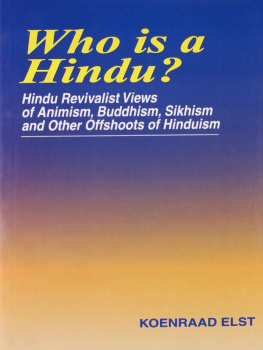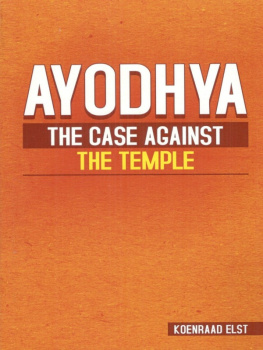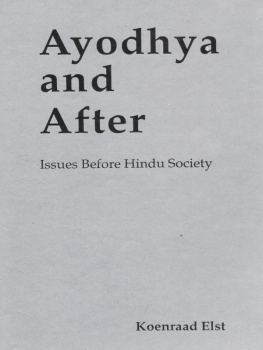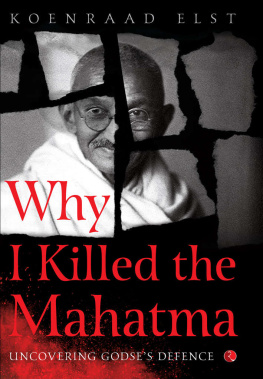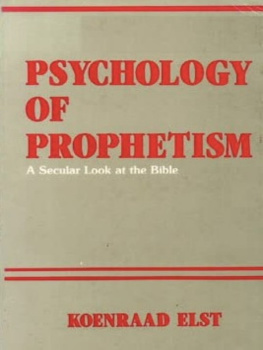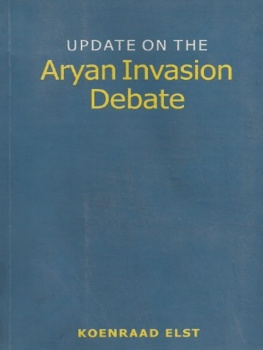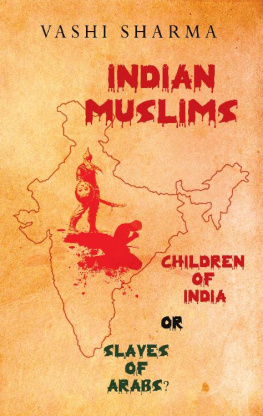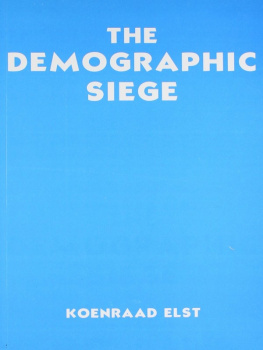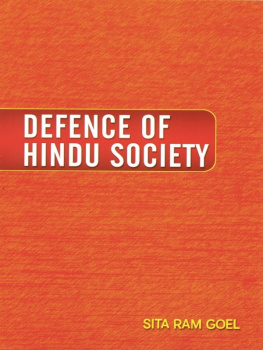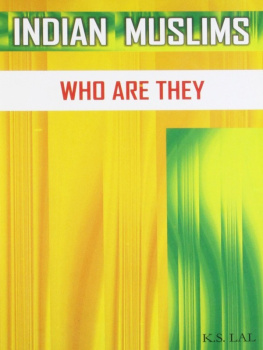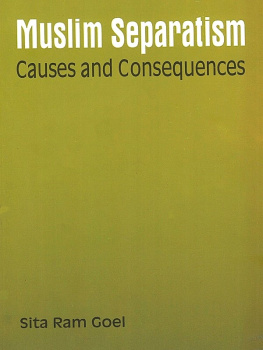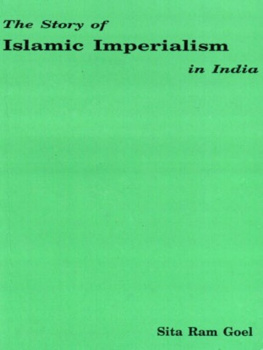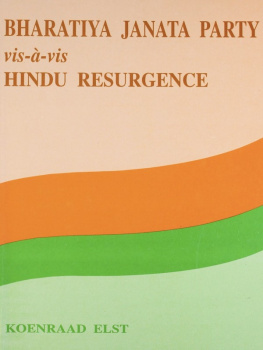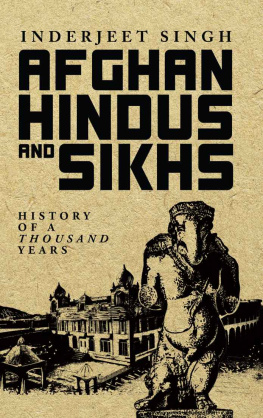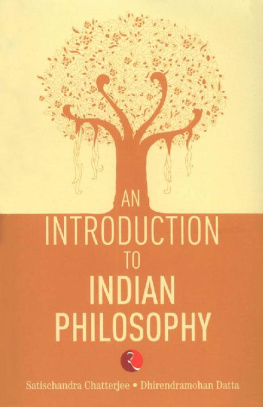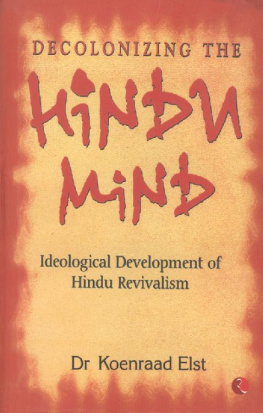Negationism in India
Concealing the record of Islam
By
Koenraad Elst
Published By The Voice Of India
New Delhi, India
From The Cover Of "Negationism In India - Concealing The Record Of Islam
Foreword
Some Excerpts
Chapter 1 : Negationism In General
Chapter 2 : Negationism In India
Chapter 3 : Exposing And Refuting Negationism
Chapter 4 : Reply To Some Questions And Criticisms
FROM THE COVER OF "NEGATIONISM IN INDIA - CONCEALING THE RECORD OF ISLAM"
Negationism usually means the denial of the Nazi genocide of the Jews and Gypsies in World War 2. Less well-known is that India has its own brand of negationism. A section of the Indian intelligentsia is still trying to erase from the Hindus' memory the history of their persecution by the swordsmen of Islam. The number of victims of this persecution surpasses that of the Nazi crimes. The Islamic campaign to wipe out Paganism could not be equally thorough, but it has continued for centuries without any moral doubts arising in the minds of the persecutors and their chroniclers. The Islamic reports on the massacres of Hindus, destruction of Hindu temples, the abduction of Hindu women and forced conversions, invariably express great glee and pride. They leave no doubt that the destruction of Paganism by every means, was considered the God-ordained duty of the Moslem community. Yet, today many Indian historians, journalists and politicians, deny that there ever was a Hindu-Moslem conflict. They shamelessly rewrite history and conjure up centuries of Hindu-Moslem amity ; now a growing section of the public in India and the West only knows their negationist version of history. It is not a pleasant task to rudely shake people out of their delusions, especially if these have been wilfully created; but this essay does just that.
This essay was started as an expanded translation of a Dutch-language book review of Sitaram Goel's Hindu Temples: What Happened To Them , which could not be published in its original form due to pro-Islamic pressure; and of an article on Islamic negationism published in the Septemeber 1992 issue of the Flemish monthly Nucleus .
The author:
Koenraad Elst (Leuven, 1959) grew up in the Catholic community in Belgium. He was active for some years in what is known as the New Age movement, before studying at the famed Catholic University of Leuven (KUL). He graduated in Chinese Studies, Indo-Iranian Studies and Philosophy. He took courses in Indian philosophy at the Benares Hindu University (BHU) and interviewed many Indian leaders and thinkers during his stay in India between 1988 and 1992. He has published in Dutch about language policy issues, contemporary politics, history of science and Oriental Philosophies; in English about the Ayodhya Issue, and about the General Religio-political Situation in India.
FOREWORD
This book is a much-expanded version of an article titled Het Islam-negationisme , published in the September 1992 issue of the Flemish Catholic monthly Nucleus , combined with a review of Sitaram Goel's book "Hindu Temples, What happened to them, vol. 2: The Islamic Evidence" . The review was written for Infoerient , the Dutch language periodical of the Asian and Islamic Studies department of my Alma Mater, the Catholic University of Leuven, under the title Een Heiden tegen het Negationisme ( A Pagan's Stand against Negationism ). However, after some dilly-dallying and moving it around like a hot potato in the mouth, it was decided that publishing this review was too dangerous: the good relations with the embassies of Islamic countries might be harmed, aqnd the dominant trend in what is called public opinion might object to this highlighting of a frank critique of Islam.
This censorship is at once a good illustration of how the effective prohibition of Islam crticism has fast become a worldwide phenomenon. When I discovered the Islam problem during my first stay in India in 19988, and the concomitant pressure against Islam criticism, it had still seemed a Third World problem, far removed from post-Enlightenment Europe. Today, after the Rushdie affair, the threatened or effective murder of Islam critics (like the Egyptian Farag Foda), and the threats and administrative sanctions against Islam critics in Europe by non-Muslim authorities (like the sacking of the French civil servant Jean-Claude Barreau), the taboo on a frank discussion of Islam has the whole world in its grip. A study of Islam negationism, i.e., the denial of its historic crimes against humanity, has become even more necessary.
This book develops a theme I have touched upon in my earlier books on India's communal problem, Ram Janambhoomi vs. Babri Masjid and Ayodhya and After , viz. the practice of systematic distortion out of political motives, especially the destruction wrought by Islam in its jihad against Hinduism.
In my study of the Ayodhya controversy, I noticed that the frequent attempts to conceal or deny inconvenient evidence were an integral part of a larger effort to rewrite India's history and to whitewash Islam. It struck me that this effort to deny the unpleasant facts of Islam's destructive role in Indian history is similar to the attempts by some European writers to deny the Nazi holocaust. Its goal and methods are similar, even though its social position is very different: in Europe, Holocaust negationists are a fringe group shunned by respectable people, but in India, jihad negationists are in control of the academic establishment and of the press.
I want to dedicate this book to Boutros Ghali, the new secretary-general of the United Nations Organization. As a Coptic Christian in Egypt, he has risen to unusually high posts in the administration of his country, probably higher than young Copts can today reasonably look forward to. Though he was sidelined in the end by being promoted to the symbolic post of deputy prime minister, he gave hope and pride to the fellow-members of his community by climbing as high as possible for a non-Muslim in a nominally secular state. Of course, in his difficult position he cannot speak out against the Islamic oppression which his own community has suffered; but in his own way, he has contributed to alleviating the hold of Islam on his part of the world. He played a key role in the Camp David peace treaty between Egypt and Israel, for which Egypt was thrown out of the Arab League and president Sadat was killed by Islamic fanatics. The Camp David treaty proved that a nation can put its national interests and its desire for peaceful co-existence above its commitment to pan-Islamic brotherhood with its programme of hatred and destruction. It has reminded us how in the end, reason is bound to defeat Islam.
Delhi, Innocents' Day (28 December) 1992
Some Excerpts
The next generation of political leaders, especially the left-wing that was to gain control of Congress in the thirties, and complete control in the fifties, would profess negationism very explicitly. The radical humanist (i.e. bourgeois Marxist) M.N. Roy wrote that Islam had fulfilled a historic mission of equality and abolition of discrimination, and that for this, Islam had been welcomed into India by the lower castes. If at all any violence had occurred, it was as a matter of justified class struggle by the progressive forces against the reactionary forces , meaning the fedual Hindu upper castes.


